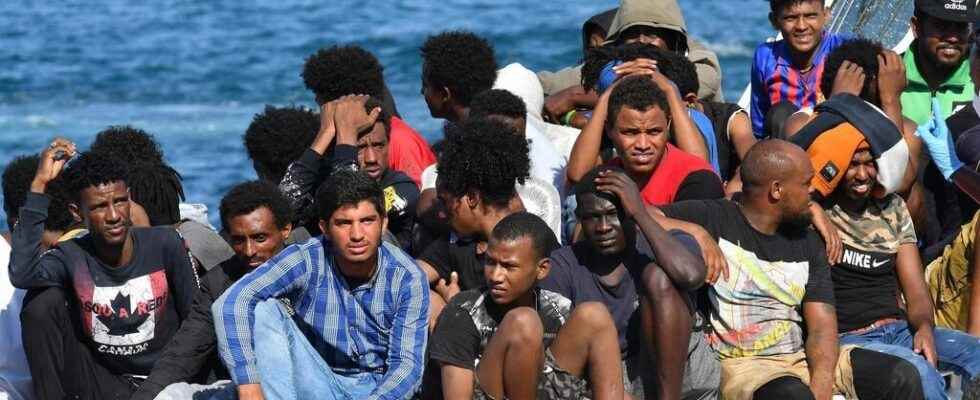A new tragedy occurred in Tunisia last week, in the Mediterranean, following the sinking of a migrant boat. The latest report shows twelve dead, six new bodies having been recovered by the coast guard, this Monday, September 12, off Mahdiya, a city in the center-east of the country, according to the authorities. The boat was carrying 37 migrants, all of Tunisian nationality.
These migrants were trying to reach the Italian coast like hundreds of others. Since 2021, illegal departures of Tunisians to the Italian coasts, via the central Mediterranean, have experienced a sharp increase.
According to the European agency Frontex, the path of the central Mediterranean was taken by more than 42,500 people during the first six months of 2022, an increase of 44% compared to the same period of the year 2021.
Among these migrants, from several African countries, there are 13,300 Tunisians, including 2,000 minors, according to the Italian Interior Ministry which indicates that, still between January and the beginning of July 2022, 1,004 illegal migrants died, half of these people being Tunisians.
From Tunisia, departures are made on makeshift boats which, most of the time, fail, before crossing the 200 km which separate Tunisia from the Italian island of Lampedusa.
At the end of August, in just a few days, the Tunisian authorities intercepted or rescued more than 500 illegal migrants during several rescue operations.
The impoverishment of part of the population
Faced with the serious economic and political crisis that the country is going through, attempts at illegal emigration tend to increase, especially in spring and summer. Candidates for immigration thus benefit from the mild climatic conditions.
Interviewed by RFI, Samia Abou Slama Létaeif, member of the steering committee of the Tunisian Forum for Economic and Social Rights (FTDES), an NGO which works in particular on Tunisian illegal migration, explains that this increase in the number of illegal Tunisian migrants is due to the impoverishment of part of the population.
People who run the risk of illegal emigration, in particular, see and consider that the risk is less than the poor conditions they experience.
Samia Abou Slama Létaeif, member of the steering committee of the Tunisian Forum for Economic and Social Rights (FTDES)
